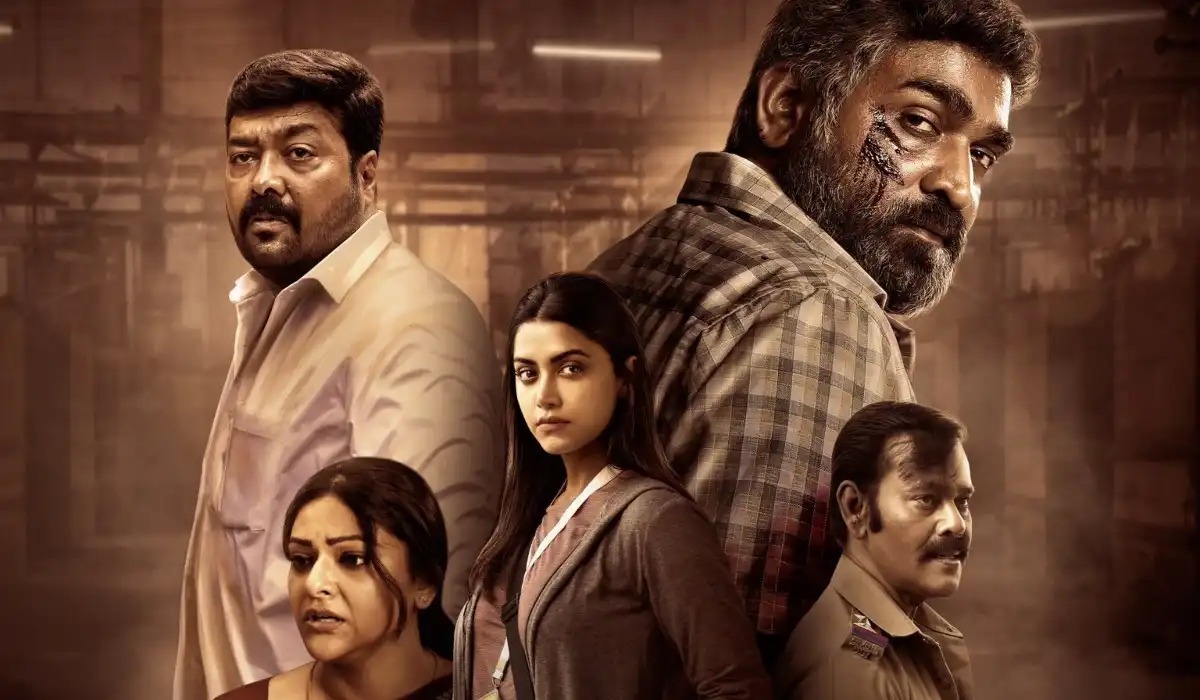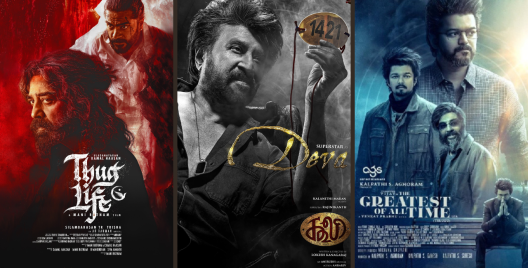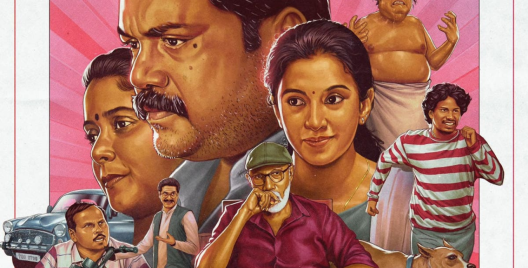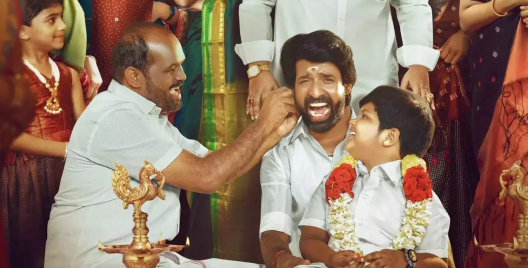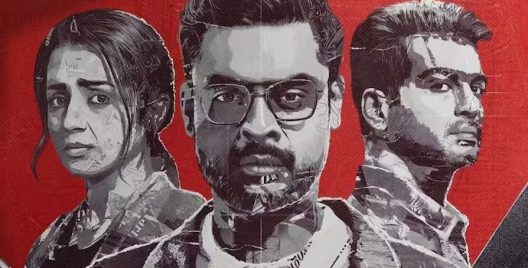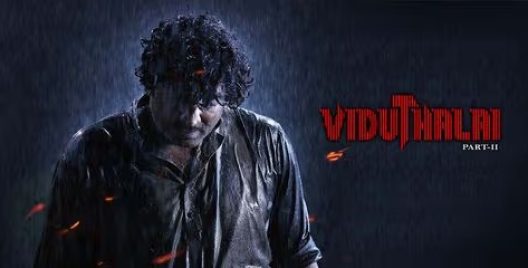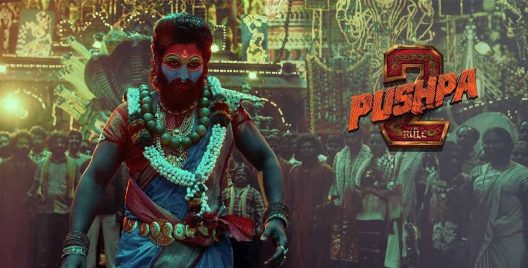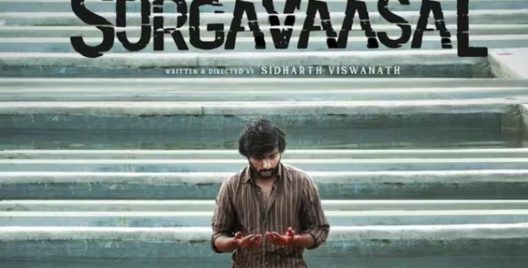MAJOR SPOILERS AHEAD
Nithilan Saminathan’s Maharaja (2024), a taut thriller with a clever screenplay is winning high praise from the audience. The film certainly deserves the reception it has got, considering it keeps the viewer engaged throughout. Vijay Sethupathi’s performance, as a man in search of an uncomfortable truth, also makes the film special. However, its treatment of sexual violence, a crucial plot point, needs to be discussed more.
Maharaja (Vijay Sethupathi) is a barber with a tragic past. He lives with his school-going daughter Jyoti (Sanchana Namidass) who is also an athlete. Both of them worship an iron dustbin called Lakshmi – a dustbin that saved Jyoti’s life in an accident. One day, Maharaja goes to the police station and says that a group of men assaulted him and took the dustbin away. He wants the police to find the dustbin and return it to him. The police find the whole situation to be absurd but since Maharaja is willing to bribe them to take up the case, they decide to humour him.
The twist in the plot is that Maharaja is actually in search of the men who sexually assaulted his daughter. The motive for the crime is revenge because the leader of the gang, Selvam (Anurag Kashyap), believes it was Maharaja who had led the police to arrest him in the past. In yet another twist, it is revealed that Jyoti is actually Selvam’s biological daughter. Selvam kills himself in agony, realising that he had spearheaded the assault on his own daughter whom he’d loved very much before she was separated from him as a baby.

Now why is this problematic? For one, the film does not focus on Jyoti and her trauma at all. Instead, it is about two male characters – the hero and the villain – and their response to the incident. Maharaja is angry because his adoptive daughter has been sexually assaulted. Selvam allows the rape because he thinks Jyoti is Maharaja’s daughter. Then, Selvam feels devastated because he realises Jyoti is actually his biological daughter. The film constantly defines the survivor in terms of her relationship with the male characters, never looking at her as an individual who has been subjected to such trauma.
Her trauma is treated in an entirely unrealistic manner simply to drive the plot forward. For instance, when she’s in hospital after the rape, the first thing she tells her father is that she wants to meet her rapists. To remind the reader again, this is a child who is barely 14. The film is uninterested in exploring her trauma and instead makes it look like it’s natural for a rape survivor to have something like this as their No.1 priority.
Later in the film, Jyoti confronts Selvam – without knowing he’s her biological father – and says she just wanted to see the face of a shameless man. But if the shame of the crime belongs to Selvam and not her, why is her rape kept a secret in the film? Why doesn’t Maharaja go to the police station and tell them the truth instead of talking about a dustbin? If he must pay a bribe for a sincere investigation, why doesn’t he pay it for a rape case? Does he really think the police are more likely to search for a dustbin than hunt a gang of serial rapists?
Surprisingly, though the police figure out what has actually happened, they too side with Maharaja in seeking revenge on the rapist and keeping the sexual assault a secret rather than taking the legal route. Why should sexual violence be kept a secret by everybody involved if the shame of the crime is not the survivor’s?
The plot is written in a way that the audience, too, feels the impact of what has happened because of our realisation about the biological father. The rape itself has no significance unless it is read with this context. Unfortunately, such perspectives only add to a culture where rape isn’t seen as a crime inflicted on a woman, but as a dishonour inflicted on her family and community. This is why rape remains a severely underreported crime and is used as a weapon in conflict situations like riots and war.

Many people have compared Maharaja to the Korean film Oldboy (2003), and this response is quite revealing of how we view sexual violence as a society. In Oldboy, the protagonist is tricked into having a consensual sexual relationship with his adult biological daughter by a man who seeks revenge against him. The protagonist is devastated when he realises the truth. But the plot in Maharaja does not revolve around a consensual sexual relationship. It is the rape of a minor, not incest. Yet, many seem to feel this is one and the same. That response indicates something fundamental to rape culture – it is not the woman’s experience that matters. It doesn’t matter if she consented to a sexual act or was violated. It is how she’s defined in relation to a man that matters.
This is why our cinema has produced so many rape-revenge stories. Films that focus on male rage and violence rather than a woman’s need to heal and secure justice. SU Arun Kumar’s Chithha (2023) is among the few films to acknowledge the fact that the narrative around rape is structured around male outrage rather than what survivors want. In a powerful scene, Shakti (Nimisha Sajayan) lashes out against her boyfriend Eeswaran (Siddharth) for wanting to kill a child rapist who had targeted his niece. She tells him about a male relative who had assaulted her, and asks how many men one can possibly kill, given that women encounter sexual violence anywhere and everywhere.
 Chithha’s open ending – with the rapist found murdered – has led to multiple interpretations. Did Eeswaran disregard Shakthi’s words and kill the man anyway? If yes, does the film want us to celebrate this or not? Or was the man killed by some other survivor’s male relative? Whichever it is, the film deserves praise for at least acknowledging that it is survivors and their needs that should be in focus.
Chithha’s open ending – with the rapist found murdered – has led to multiple interpretations. Did Eeswaran disregard Shakthi’s words and kill the man anyway? If yes, does the film want us to celebrate this or not? Or was the man killed by some other survivor’s male relative? Whichever it is, the film deserves praise for at least acknowledging that it is survivors and their needs that should be in focus.
Sexual violence is a reality that 50% of the population lives with. It should not be reduced to a mere plot point, and filmmakers should make every effort to understand why it happens and represent it with sensitivity. That is the bare minimum at this point.




